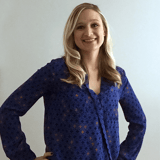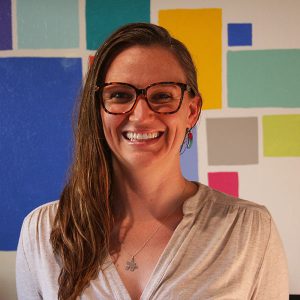Summary
The most successful UX researchers Mackenzie has had the gift of working with traverse some of the most non-linear, seemingly meandering career paths and life journeys imaginable. Yet job requirements and research career ladders, if they exist at all, seem to expect and even demand a linear trajectory, all too often focused on tenure as a main criteria for growth. This session will suggest new criteria for evaluating the maturity of one’s research practice as well as propose a focus on one’s researcher identity. Mackenzie wants to explore how we might better recognize transferable skills and capabilities and explore more inclusive frameworks that can house the wide variety of lived experiences that so clearly leads to success in the UX research space.
Key Insights
-
•
Most successful UX researchers have highly non-linear, meandering career paths that conflict with rigid job requirements expecting linear progression.
-
•
Many researchers discover they’ve been practicing research unknowingly before formally entering the field—leading to a moment of recognition and excitement.
-
•
The current hiring process emphasizes ‘getting the stamp’ (certifications, credentials), which often undervalues transferable skills and prior experiences.
-
•
There is a disconnect inside organizations between what hiring managers look for, what performance reviews measure, and what actually drives researcher success.
-
•
UX research is relatively new but shares growth challenges seen in other disciplines: balancing standardization with openness to diverse backgrounds.
-
•
Defining individual and team research identities with protected time helps surface unseen skills, values, and success definitions that improve team alignment and inclusion.
-
•
Collaboratively creating successful project models encourages shared understanding of what success looks like beyond visible deliverables and dogmatic processes.
-
•
Recruitment should move beyond traditional channels using strategic outreach to discover people whose prior roles or activities signal potential excellence in UX research.
-
•
Onboarding and supporting career changers requires ongoing recognition of multi-track skills, avoiding forcing newcomers into entry-level stereotypes.
-
•
Adopting apprenticeship models from other industries can better support career changers’ growth towards mastery and leadership in UX research.
Notable Quotes
"The most successful researchers I’ve worked with have traversed some of the most non-linear and meandering career paths possible."
"I’ve heard too many researchers say they had been doing this all along, they just didn’t know it had a name or framework."
"The job requirements, buzzwords, and expensive stamps you asked for, aren’t what’s making me successful."
"A great artist can come from anywhere. Not everyone can be a great artist, but a great artist can come from anywhere."
"We cannot keep looking in the same places and hope the right people are going to those places."
"What if we treated this as a design problem and got real about what success actually means?"
"Creating individual research identities allows each person to define their skills, magic, and how they want to grow."
"The power of examining successful projects is in listening and learning from each other, not forcing one definition."
"We make ourselves judges on the technical round, smug in our own expertise, never sharing the recipe or clear instructions."
"Not just welcoming people at the front door but supporting them to grow, move, and become future leaders is critical."
Or choose a question:
















More Videos

"Your breath is the most powerful thing. It moves on its own, but it’s the one thing you can control."
Zariah CameronReDesigning Wellbeing for Equitable Care in the Workplace
September 23, 2024

"Ownership means belonging to the person who anticipates, observes, or monitors the prioritization process—not distributed ownership."
John Cutler Harry MaxPrioritization for designers and product managers (1st of 3 seminars) (Videoconference)
June 13, 2024

"A connection that I made when I was 14 years old helped me to fund my college education, find my wife, and get the job at ExxonMobil that I still have today."
Nick CochranGrowing in Enterprise Design through Making Connections
June 3, 2019

"Documentation helps explain the rationale and revisit decisions in the future, preventing repeated mistakes."
Deanna SmithLeading Change with Confidence: Strategies for Optimizing Your Process
September 23, 2024

"Our fellowships bring in private sector people to public service challenges, focusing more on the journey than on delivering final products."
Magdalena ZadaraZero Hour: How to Get Far Quickly When Starting Your Digital Service Unit Late
November 16, 2022

"Be the one who picks up the sharpie first, especially if you’re in a leadership position."
Nova Wehman-BrownWe've Never Done This Before
June 4, 2019

"We need to learn the domain, the technology, the algorithm, and the data—not enough to code, but enough for meaningful discussions."
Liwei DaiThe Heart and Brain of the AI Research
March 31, 2020

"Flexibility is the network’s ability to reconfigure itself, scalability is ability to expand or shrink, survivability is withstand attacks because codes exist across nodes."
Gordon Ross12 Months of COVID-19 Design and Digital Response with the British Columbia Government
December 8, 2021

"Leadership can be quiet and craft-focused; it doesn’t have to chase titles."
Tutti TaygerlyMake Space to Lead
June 12, 2021
















